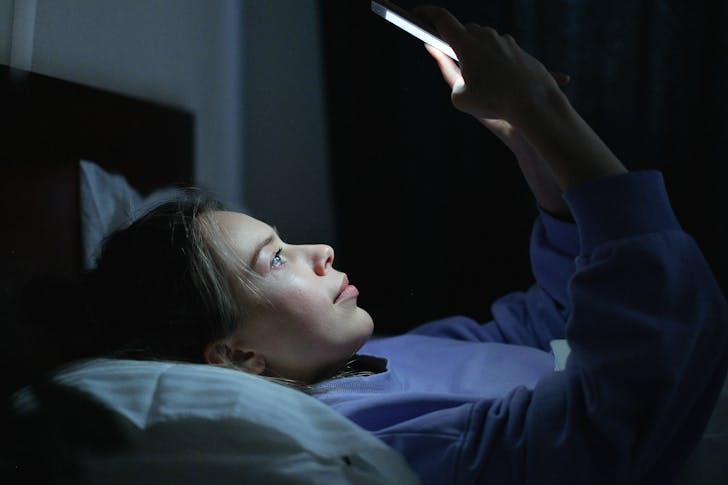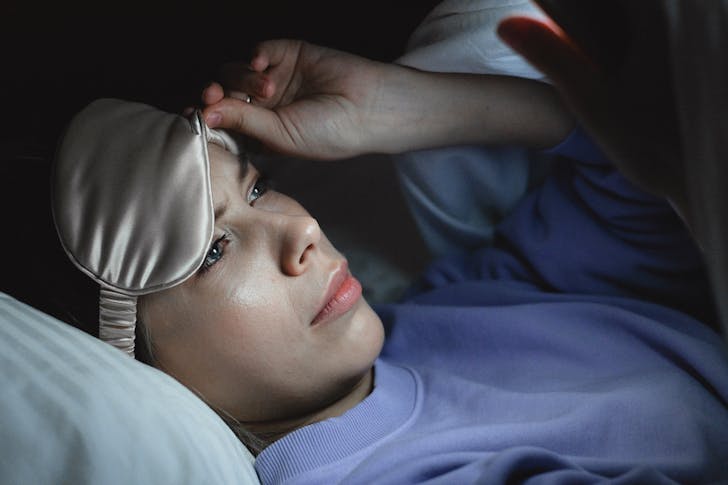Blue light, a short-wavelength light naturally found in sunlight, helps our bodies stay alert and focused during the day. When exposed to blue light, the brain suppresses melatonin, the hormone that signals us to wind down and sleep.
When we use screens emitting blue light close to bedtime, it sends mixed signals to the brain, confusing our internal clock and delaying sleep.
The brain interprets blue light as a cue to stay awake, a natural response to sunlight. But unlike natural light, screen light exposure doesn’t change gradually, creating a sudden interference with our sleep cycle. This effect explains why people who spend hours in front of screens before bed often find it challenging to fall asleep right away. The constant input of artificial blue light disrupts our ability to enter sleep mode smoothly.
Why Is Blue Light Blamed More Than Other Types of Light?
Blue light is not the only color light emitted by screens. Yet. it receives much more attention when it comes to sleep. Unlike warmer tones, blue light is particularly stimulating to the brain because it is closer to the type of light we see outdoors during daylight hours. This type of light tells our brain that it is time to stay awake, even if we are using it late at night.

Yet, experts argue that while blue light does play a role, other factors in screen use – such as brightness, mental engagement, and the type of activity we are doing – are also to blame. The color of the light may be an important piece of the puzzle, but it is not the only part of why screens disrupt our sleep.
What is the Impact of Blue Light on Circadian Rhythm?
The human body has a natural internal clock, known as the circadian rhythm, that controls sleep and wake cycles. Blue light, especially at night, disrupts this rhythm by signaling the body to stay awake when it should be winding down.
Exposure to blue light in the evening can shift your body’s natural clock. Thus, this makes it harder to fall asleep at your usual time. Over time, this can lead to a pattern of sleep disruption.
Blue Light Isn’t the ONLY Problem!
When discussing blue light and sleep, it is essential to consider brightness too. Bright screens, no matter the color of the light, stimulate our eyes and make it harder for the brain to switch off. A smartphone at full brightness emits far less light than the sun, but it is still bright enough in a dark room to keep you alert.

Experts recommend lowering your screen’s brightness as part of a nightly routine to reduce the impact on your sleep. Dimming your screen and room lights an hour before bed creates a more sleep-friendly environment. This reduction can make a noticeable difference, allowing your brain to ease into rest mode.
Reduce Blue Light Exposure and Create a Sleep-Friendly Routine
The best way to reduce blue light’s effect on your sleep is to limit screen use before bed. Establishing a screen-free hour before sleep can make a big difference. Lowering screen brightness, using night mode, and dimming room lights can all contribute to a smoother transition to sleep.
If you can, consider using traditional alternatives to screens for evening activities, such as reading a book or listening to soothing sounds.
Another simple change is to keep your phone away from your bed. If your phone is nearby, you are more likely to check it, leading to more exposure to blue light and mental engagement. Placing your phone across the room or even in another room can make it easier to avoid the temptation of late-night scrolling.




